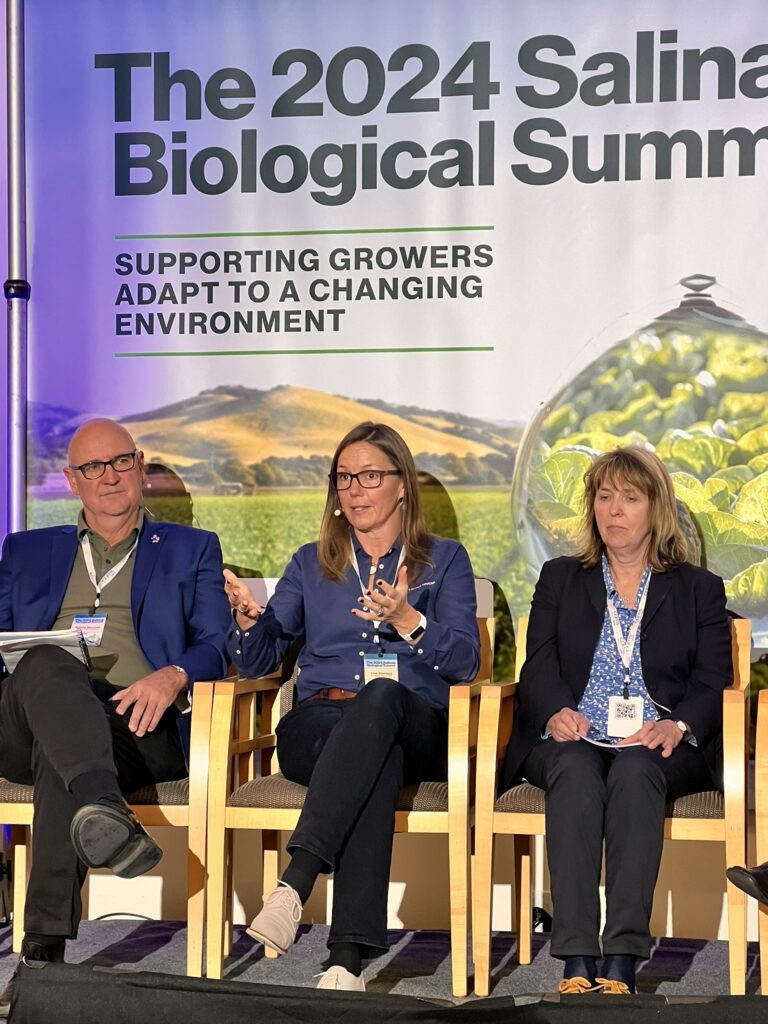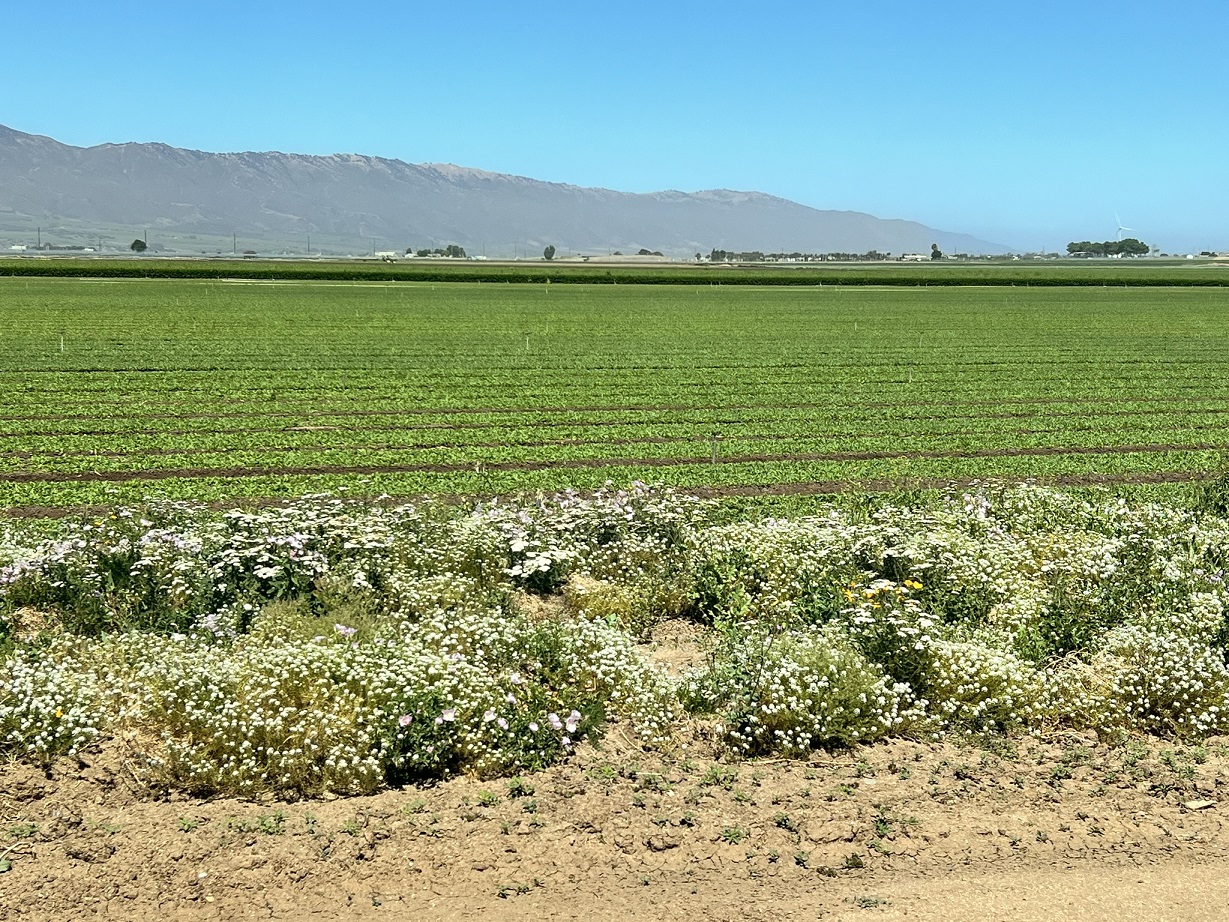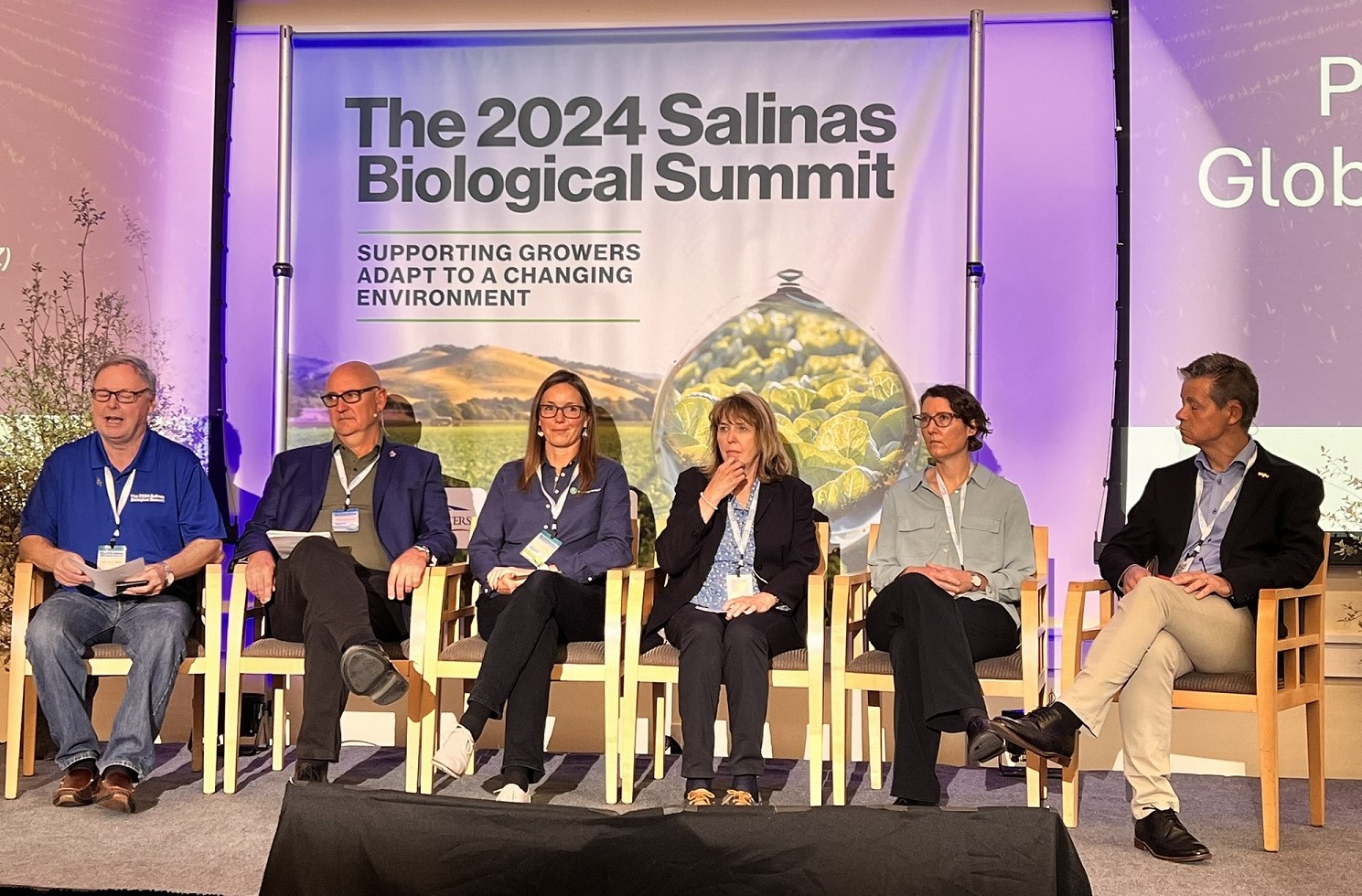The A Lighter Touch programme itself, and its biodiversity projects, attracted significant interest from international attendees at the Biologicals Summit in Salinas, California.
The second annual summit, hosted by Western Growers, one of the largest produce grower groups in the world, and New Zealand agritech consultancy Wharf 42, was held in late June. Those attending included scientists, multi-national agrichemical companies, agtech investors, crop protection advisors, farmers and growers, and regulators.
A Lighter Touch programme director Livia Esterhazy gave an overview of the A Lighter Touch programme as part of a panel discussion about programmes globally encouraging greater uptake of biological products.
Following her presentation, Livia and her colleague programme manager Sarah Sorensen were approached by delegates from the United States, the United Kingdom, Europe and Australia, all interested to learn more about the programme and how it worked.

A Lighter Touch programme director Livia Esterhazy (centre) presents alongside other international speakers at the Biologicals Summit in Salinas.
“There was a clear message at the summit from all presenters that finding new crop protection solutions is one part of the equation, but educating growers on how to use them is equally important. The way A Lighter Touch works with its product group partners to demonstrate the commercial viability of new crop protection tools on farm and orchard was something that people were very interested in.”
Delegates attending the summit and growers Livia and Sarah met on farm visits also wanted to hear more about the A Lighter Touch biodiversity projects in both vegetable and perennial orchard crops.
“From what we saw on farms in California, the science underpinning our biodiversity projects and the grower resources developed from them are further advanced than similar work in the US. The feedback we were given is that the regional specialisation we are moving into with our biodiversity projects is world-class,” Livia says.

Biodiversity planting at a vegetable farm in Salinas.
The main reason for A Lighter Touch attending the biologicals summit was to connect with regulators globally, with a view to learning what’s working in the regulatory space internationally that could be of interest to New Zealand.
“We made some really good connections in the regulatory space to inform our work which is focused on improving access to new biologicals in New Zealand. Many countries were looking to Brazil, where changes to their regulatory processes means a new biological can be registered in eight to 12 months.”
However, even in California where many more biological products are registered and available for us, a lack of understanding of how they integrate into a crop protection programme is holding back uptake, with 50% of growers not using them.
“Everyone agreed grower education is a vital ingredient. Growers have been dealing with pests and diseases in a certain way, predominantly with synthetic chemistry, for decades. Asking them to now use a biopesticide is not simply a replacement of product. It’s a whole different approach which requires a great deal of education, knowledge transfer and demonstration to de-risk these changes for the grower.”
